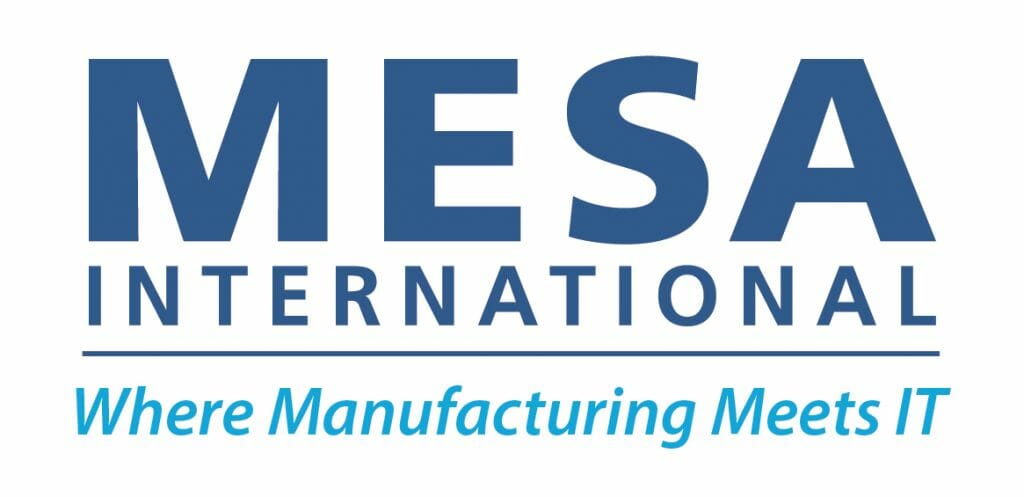8:30am ET
Welcome & Highlights for the Day
John Clemons, Uwe Kueppers, Khris Kammer
845:am ET
Keynote Address: "Effective Logistics Through Digitalization"
Christoph Wust, Ford Motor Company (retired)
Manufacturers and also Consumers often see Logistics only as a cost and burden. Over decades, the main focus was on reducing cost by balancing a reasonable delivery time and predictability. Any interruption in the delivery chain causes delay and are in best case communicated back to the sender and receiver. Today, full bi-directional data integration and digitalization allows the sender and receiver to take active actions on cost, speed and predictability point in time along the entire process which results in a goal-oriented Supply Chain Management.
9:30am ET
MESA Model Use Case: Packaging Sustainability for Consumer-Packaged Goods
Uwe Kueppers, Rockwell Automation
Sustainability touches many different facets and areas of a company. Sustainability can range from improving product sustainability (e.g., material sourcing, formulation, design, disposal, recycling, etc.), supply chain (supplier, logistic & distribution, etc.), production (production process, energy, rework, internal logistics, assets, waste, disposal and recycling, packaging, etc.) to production assets (energy optimized assets, etc.) All have a major influence in the overall sustainability of a company.
As sustainability must be in the DNA of every company, the question is where to start and what is in it for everyone. The MESA Model begins with the right business objective. Based on the challenges outlined in this presentation, the importance of focusing on what creates the biggest impact from results vs. time, complexity, and investment is clear.
10:00am ET
Success Story: "Neural Manufacturing - Shaping up to build sustainable competitive advantage in the 21st century"
Sreenivasa Chakravarti, Tata Consultancy Services
The operating and business models in manufacturing enterprises are undergoing numerous changes. Two strategic levers driving their transformation are:
1. Ecosystem-centric B2B2C business models
2. Connected, cognitive, and collaborative value chains defining the new operating models
Conventional value chains have been largely linear, and have followed a cost-plus approach, where the value of products and services has been delivered downstream. While this conventional structure served manufacturers well in the past, it is increasingly a challenge to cater to current emerging market and business demands, riding on the conventional value chains. With the emergence of ecosystem-centric businesses, the demands from value chains are now more focused on flexibility, agility, and connectedness.
We see the emergence of two constructs of value chains to serve the above-mentioned business strategies:
- Multiple value chains converging around the customer, with the extended manufacturing enterprise playing the part of an orchestrator of customer value – the new avatar of the erstwhile customer-centric value chain.
- Manufacturers can use their new value chain capabilities to participate in multiple ecosystems and serve different customer segments
To meet these demands, value chains need to be designed to exhibit characteristics such as
being data driven and intelligent, promoting networked and flexible collaboration with supply chain partners, providing multi-tier visibility for planning and operations, enabling intelligence for autonomous decisions making, and reducing carbon footprint of operations.
With the 21st century neural value chain, a manufacturing enterprise can orchestrate niche ecosystems to serve multiple purposes such as tapping into emerging business opportunities, accessing new markets, and running controlled experiments for futuristic products. Technology adoption, seen through the prism of digital capabilities, will help manufacturers reshape their businesses, customer experiences, products, and services.
10:30am ET
Smart Manufacturing Model: "Change Management - Why Do We Need This?"
Uwe Kueppers, Rockwell Automation
Change Management is in everyone's mind but what does it mean for a successful turn of a company. Do we need to change the way people work today? How will people work in future environments collaborating with AI, COBOTs, and other new technologies? What is needed from a company structure set up and organization? Let’s get inspired by a debate of experts and their visions.
11:00am ET
Success Story: "OT Security - Why You Can't Ignore It Anymore"
Jim Molter, Komatsu Mining
It used to be that cyber security was just an IT thing. Industry 4.0 is all about integrating physical systems and cyber systems, so we no longer have the luxury of ignoring cyber security on the factory floor. This session is meant to be an introduction to OT security. It will answer the “why” around OT cyber security but not the “how”, as that will be different for every factory. This session will highlight the importance of cyber security in the manufacturing environment and give you some things you need to think about as you start to develop your own OT cyber security strategy.
11:30am ET
Smart Manufacturing Community: "Getting Beyond Siloes of AI for Supply Chain Decisions"
Julie Fraser, Tech-Clarity
Artificial intelligence holds the promise of entirely new insights for better decision-making. However, is it doing that in your company today? Manufacturers have long suffered from discipline-specific or “siloes” of data and information. Increasingly, those siloes have their own specific AI or analytics. Bring your questions, thoughts, and experiences for this interactive short-version of the MESA Smart Manufacturing Community Supply Chain Group discussion.

